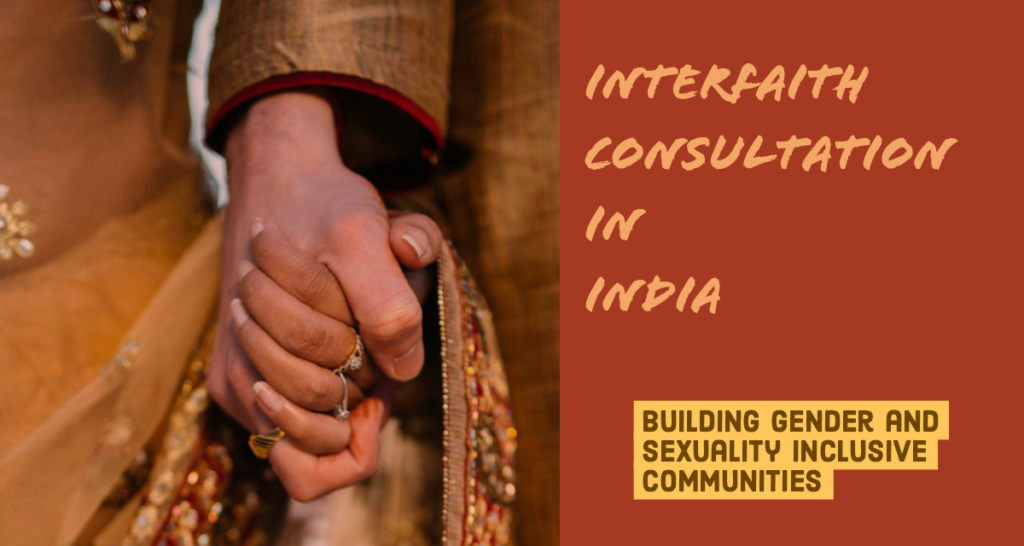Interfaith Consultation on Building Gender and Sexuality Inclusive Communities
Annual Steering Committee Meeting of National Council of Churches in India – ESHA with Partners
An Interfaith Consultation was organized at the CSI Synod Centre, Chennai from April 15-16, 2019, by the NCCI – ESHA Project, bringing together key LGBTI+ activists and a few faith leaders to discuss the role of faith-based agencies in building gender and sexuality inclusive communities in the country.
The consultation was organized in the context of the largely perceived notion of inclusiveness and tolerance in Indian society while significant gaps prevail in contentious areas of gender and sexuality. Many undergo severe mental trauma, abuses, isolation from their own homes and communities, because of which they are unable to lead a healthy and dignified life.
There is a high rate of suicide among the Sexual Orientation Gender Identity (SOGI) communities in India. Many become school drop-outs and are unable to access higher education and livelihood options, in spite of the government reservations available today. Access to healthcare has either become a traumatic experience or unaffordable.
The delegates shared various issues faced at grassroots levels. It was largely felt among the LGBTI+ communities that they want to be accepted and be part of their existing faith communities, rather than having to be discriminated against and asked to start their own faith community. While there are contentious issues concerning the acceptance of homosexuality and the gay community, there were no such issues regarding accepting transgender people.
In spite of this reality, they continue to face discrimination and abuse. It was observed that there are hardly any positive conversations and discussions around sexuality at large, whereby, there is a big need to create a healthy atmosphere to learn and discuss some of the basic aspects of human sexuality. Gender and Sexuality are often mixed together and wrongly understood and there is a need to engage with both separately. It was also observed that there are more factors other than scriptural, which influences the way a society or a faith community understands gender and sexuality identity.
These are cultural, ethnic, and traditional factors, which also influence how the interpretation of scripture, and hence the understanding of gender and sexuality. In such realities, sharing testimonies by the marginalized has helped faith communities understand them better. Suicides, attempts of suicides, and health issues including HIV-related issues are some of the major issues faced by the LGBTI+ communities. The need for legal services, health care, and counseling services was stressed. Existing services in these areas by government and non-government agencies are not sufficient or efficient.
Many of the issues are also linked to livelihoods, where many face challenges and often risk their lives for the same. The existing government plans need to be assessed and opportunities for networking need to be explored. The NCCI General Secretary shared about the formation of the standing forum of NCCI, i.e. the National Ecumenical Forum for Gender and Sexual Diversities in 2014, as a significant step taken by NCCI towards inclusivity and stressed the need to embrace this vision within the NCCI.
Annual Steering Committee Meeting of NCCI – ESHA with Partners

